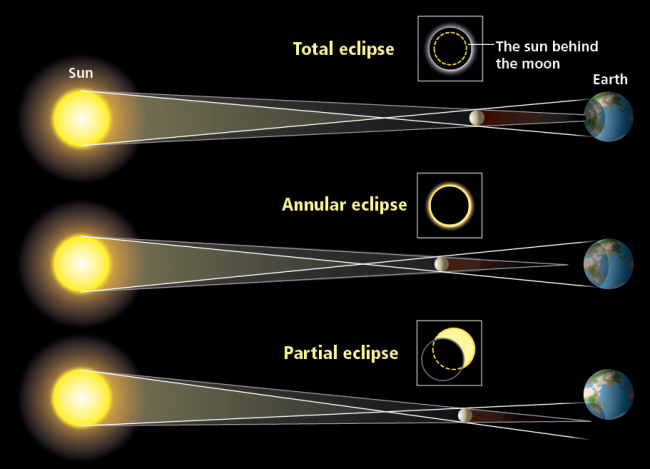Important Facts For Prelims
Annular Solar Eclipse
- 20 Jun 2020
- 2 min read
Why in News
India will witness an annular solar eclipse on 21th June, 2020.
Key Points
- A solar eclipse occurs when the moon passes between the sun and the earth. When this happens, the moon blocks the light of the sun from reaching the earth. The shadow of the moon is then cast on the earth.
- There are three types of solar eclipses:
- Partial solar eclipse: When the sun, moon and earth are not exactly lined up.
- Total solar eclipse: When the sun, moon and earth must be in a direct line.
- Annular solar eclipse: It is a particular type of total solar eclipse. It occurs when the sun, moon and earth are not only in a straight line but also in the same plane.
- The moon also must be farther away from the earth, which will allow it to not cover the disc of the sun completely, resulting in a narrow band of light around the dark colour of the moon causing the ring of fire to be visible.
- Therefore, It is also called the ring of fire eclipse.
- The distance between the earth and the moon at the moment of the eclipse can dictate the type of eclipse that will take place.
- The distance between the earth and the moon is always changing due to the egg-shaped elliptical orbit of the moon.







